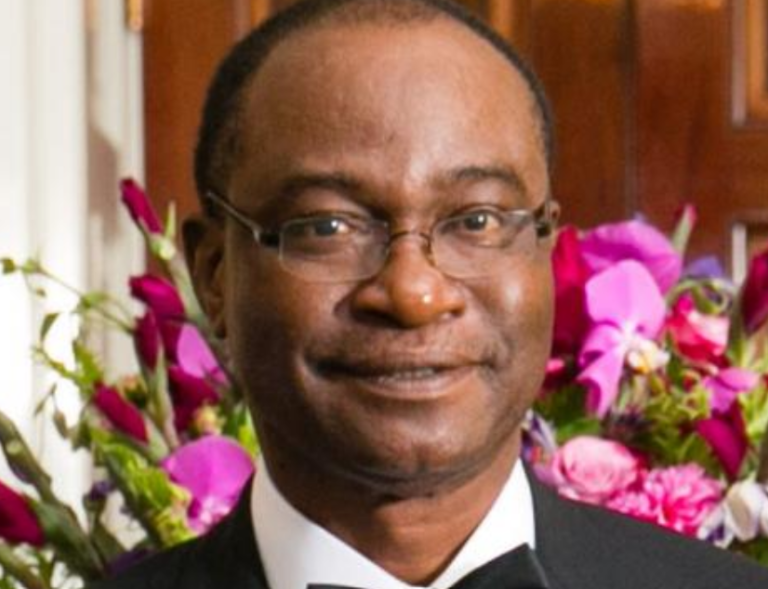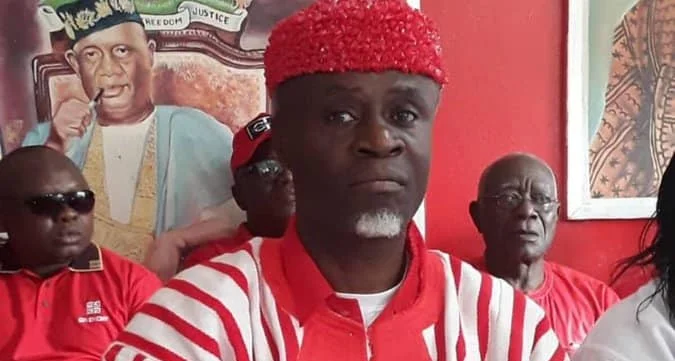By Mackie M. Jalloh
The main opposition All People’s Congress (APC), once an undisputed political force behind some of Sierra Leone’s most significant socioeconomic transformations, continue to find itself in troubled waters ahead of the party’s next national delegates’ conference if not the 2028 general elections. Despite its enduring legacies and appeal to the people of Sierra Leone, the APC’s current internal divisions and leadership struggles backed by governance crisis are threatening to undermine the APC’s relevance in the country’s future political landscape.
For decades, the APC thrived on its capacity to unite Sierra Leoneans around shared goals of development, stability, and national progress. Under the stewardship of leaders like late president Dr Siaka Probyn Stevens and former President Dr Ernest Bai Koroma, the party played a key role in building the infrastructure that now defines modern Sierra Leone. From the expansion of roads to energy projects, the APC’s track record of delivery helped cement its reputation as a party of progress.
However, the same party that once dominated national discourse has recently been plagued by internal discord, weak leadership, and a seeming lack of vision for the future. After suffering defeats in both the 2018 and 2023 elections, the APC is now struggling to reinvent itself as a viable alternative to the ruling Sierra Leone People’s Party (SLPP). If these challenges go unresolved, the party may find itself ill-prepared to face the electorate in 2028, with significant consequences not only for the party but also for Sierra Leone’s democracy.
Legacy and Present-Day Challenges
The APC’s fall from grace can be traced back to the aftermath of its last stint in power under former President Ernest Bai Koroma, whose administration faced widespread allegations of corruption and economic mismanagement. While the party attempted to distance itself from these controversies in subsequent elections, its inability to address these legacy issues has continued to dog its image.
Moreover, the party’s leadership vacuum since Koroma stepped down has only added to its woes. Samura Kamara, who served as the party’s flagbearer in both the 2018 and 2023 elections, remains popular but has struggled to unite the party’s factions. Internal disputes over leadership have led to deep-rooted animosities and divisions, which have weakened the party’s capacity to present a united front.
Leadership Crisis and the Search for a Unifying Figure
One of the most pressing issues facing the APC is its leadership crisis. With several factions within the party jostling for influence, the absence of a strong, visionary leader who can transcend these divisions is evident. Without resolving this internal leadership conundrum, the APC risks heading into the 2028 elections fractured and disorganized.
The party must choose a leader who can not only rally the party’s base but also appeal to a broader coalition of voters. This leader should embody the dynamism and foresight needed to bring fresh ideas and strategic direction to the APC. Only then can the party hope to regain the confidence of its supporters and win back those who have become disillusioned.
Reconnecting with Grassroots and Modernizing Party Structures
Rebuilding its traditional support base is another key challenge for the APC. Once dominant in the northern and western regions, the party has seen its influence wane in recent years as former supporters grew frustrated with its inability to deliver on promises. In these regions, the ruling SLPP has made significant inroads, capitalizing on discontent and offering new promises.
To reclaim its position, the APC must re-engage directly with its grassroots, addressing concerns such as unemployment, the high cost of living, and inadequate social services. It must also modernize its internal structures, allowing greater participation from youth, women, and marginalized groups. The APC’s traditionally hierarchical decision-making model, dominated by elites, must evolve if it is to remain relevant in Sierra Leone’s fast-changing political environment.
Building a Comprehensive Policy Platform
One of the APC’s greatest weaknesses in recent years has been its failure to present a clear, coherent policy platform. Criticism of the SLPP alone will not suffice; voters, especially younger ones, demand concrete solutions to their daily challenges. Issues such as healthcare, education, job creation, and infrastructure must be at the forefront of the party’s agenda.
If the APC can develop a comprehensive policy framework that speaks directly to the needs of Sierra Leoneans, it stands a chance of reclaiming its status as a viable alternative to the SLPP. This policy platform must also include anti-corruption measures to reassure the electorate that the party is serious about addressing its past shortcomings.
Avoiding Electoral Irrelevance
The stakes for the APC could not be higher. After two consecutive defeats, a third electoral loss in 2028 could deal a fatal blow to the party’s future relevance. Not only would this demoralize the party’s base, but it could also accelerate internal divisions and lead to the emergence of splinter factions, further weakening the opposition’s role in Sierra Leone’s democracy.
As Sierra Leone moves toward 2028, the APC must rise to the occasion and address its leadership crisis, reconnect with its supporters, modernize its structures, and present a compelling vision for the future. Failure to do so could see the once-dominant party fade into political obscurity, leaving Sierra Leone without the robust opposition necessary to hold the ruling SLPP accountable.
The time to act is now, and the APC’s future depends on its ability to rise to these challenges.













